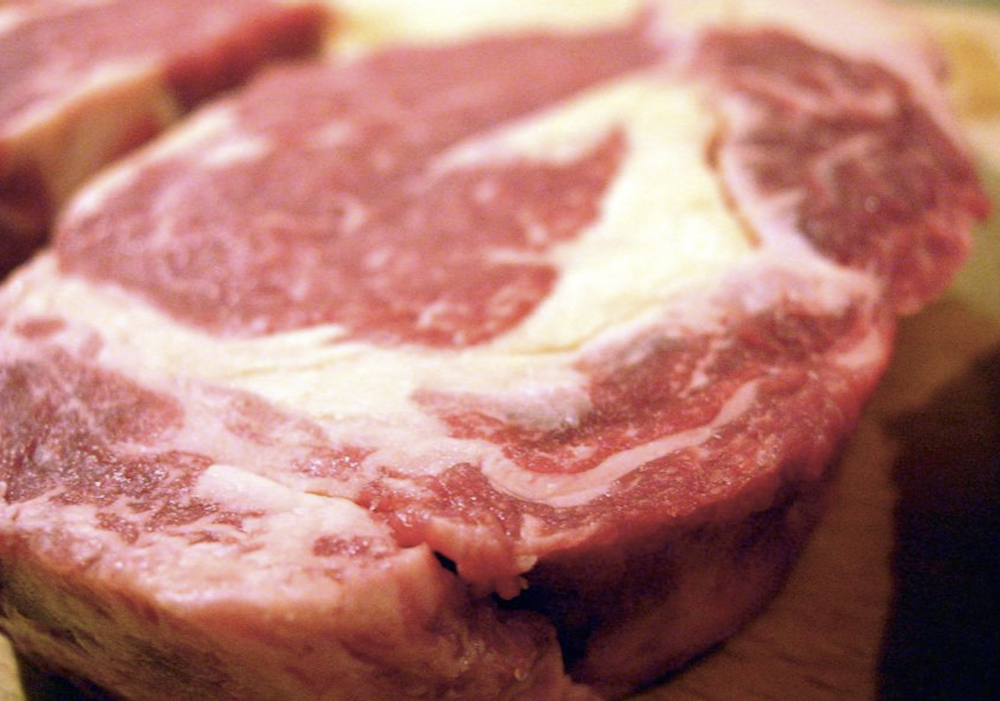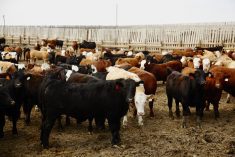The Canadian Cattle Association’s (CCA) 90th anniversary celebrations have provided us with an opportunity to reflect on our organization’s rich history — the growth of our industry, how our industry has worked together to overcome challenges and investments made to help ensure a sustainable future for our next generation.
Many of our recent successes are tied to significant investments we’ve made on the trade front. With 50 per cent of the beef raised in Canada going to markets around the globe, free and open trade is a key ingredient to our success. As the Canadian beef industry relies on exports, CCA has always emphasized the need for strong trade rules and principles that facilitate global trade.
The trade file has been very active during the first quarter of 2023. Our Ottawa team has been monitoring the progress of Bill C-282: An Act to Amend the Department of Foreign Affairs, Trade and Development Act (supply management), the proposed new requirements for “Product of USA” labels and the negotiations of the Canada-U.K. free trade agreement. All of these files can have a tremendous effect on the sustainability of the Canadian beef industry and the ability of cattle farmers and ranchers to export their products.
Read Also

The Canadian Cattle Association’s international advocacy efforts
Global ag policies affect Canadian food policy, so the Canadian Cattle Association participates in international and domestic forums
We have seen how a thriving beef industry generates considerable economic, environmental, and social opportunities and benefits for all of Canada. Both from a job creation and food security perspective, trade remains a vital aspect of our economy. A big part of our success is tied to our ability to export our high-quality beef to global markets and diversify our exports.
Our success in export markets has been earned. In 2022, we saw once again record exports in volume and value, as we exported C$6 billion in beef, beef products and live cattle. The Canadian beef industry has invested in building strong, trusted relationships with our key trading partners. But we cannot take our success for granted. The introduction of private members’ bills such as Bill C-282 can have disastrous consequences for our industry. This bill, which takes supply-managed sectors off the table during trade talks, has the potential to severely damage our trade relationships and highly constrain the Canadian government’s ability to launch, negotiate and renegotiate the best deals for all of Canada.
We have seen the benefits of progressive trade deals like the Comprehensive and Progressive Agreement for Trans-Pacific Partnership (CPTPP) and the U.S.-Mexico-Canada Agreement (USMCA) for our sector as well as the broader Canadian economy. These trade agreements were achieved through flexibility and compromise. Bill C-282 removes this needed flexibility to secure the best trade deals for all of Canada.
CCA is not the only industry affected by Bill C-282. As a member of the Canadian Agri-Food Trade Alliance (CAFTA), CCA is supporting efforts to oppose Bill C-282 alongside like-minded members by raising awareness of the potential consequences with MPs and senators from all parties. We are taking every opportunity to advocate with elected officials to communicate our concerns with this bill. Collaborating with CAFTA will be key in our advocacy efforts as they provide a unified voice against C-282, bringing together the 90 per cent of farmers who depend on trade.
On March 9, 2023, Dennis Laycraft and I had the opportunity to appear at the House of Commons Parliamentary Committee on International Trade, along with CAFTA, to share our input on Bill C-282 and emphasize the dangerous precedent this bill brings for future trade negotiations. CCA and CAFTA urged MPs to oppose the bill in its current form.
As the Canadian economy is still recovering from the effects of the pandemic, supply chain disruptions and inflation, we need to focus on priorities that will strengthen our economy and enhance the food security of Canada and the world. This bill, as it is currently written, threatens to do the opposite — it’s a risk we cannot afford to take. Canada is a trade-dependent country; we should not be closing ourselves to opportunities for economic growth and sustainability — it’s completely counterintuitive. Neither should we be taking steps that can encourage other countries to take similar steps that would limit future trade opportunities for beef (and other export opportunities).
As mentioned in my last column, CCA has been monitoring developments on the “Product of USA” label as any changes could negatively affect exports of Canadian beef and live cattle to the U.S. On March 6, 2023, the United States Department of Agriculture’s Food Safety and Inspection Service (FSIS) released the proposed new requirements for an FSIS-inspected meat product to be labelled as a “Product of USA.”
We were very concerned to see the proposed rule state that any beef product labelled as “Product of USA” must be derived from cattle that are born, raised, slaughtered and processed in the U.S. This proposed rule incorporates a similar standard to the mandatory country-of-origin labelling (mCOOL) provision, which the World Trade Organization (WTO) deemed to violate Canada’s WTO rights and to which Canada retains retaliatory rights.
CCA is working closely with our counterparts in the U.S. and Mexico on this issue as these changes can limit or hinder the integrated nature of our North American supply chain. You can count on us to take full advantage of the 60-day consultation process to ensure the best interests of Canadian cattle producers are brought forward to policymakers in the U.S.
Another key trade file that we are working on is the negotiation of the Canada-U.K. Free Trade Agreement, where we are working closely with Canadian negotiators to achieve reciprocal beef market access with the U.K. Dennis Laycraft and John Masswohl travelled to London, England, in mid-March to meet with the industry representatives in the U.K. to help advance discussions on this front.
With the increased activity on these important trade files, an update on the outcomes of CCA’s annual general meeting in Ottawa will have to wait until my next column.
















